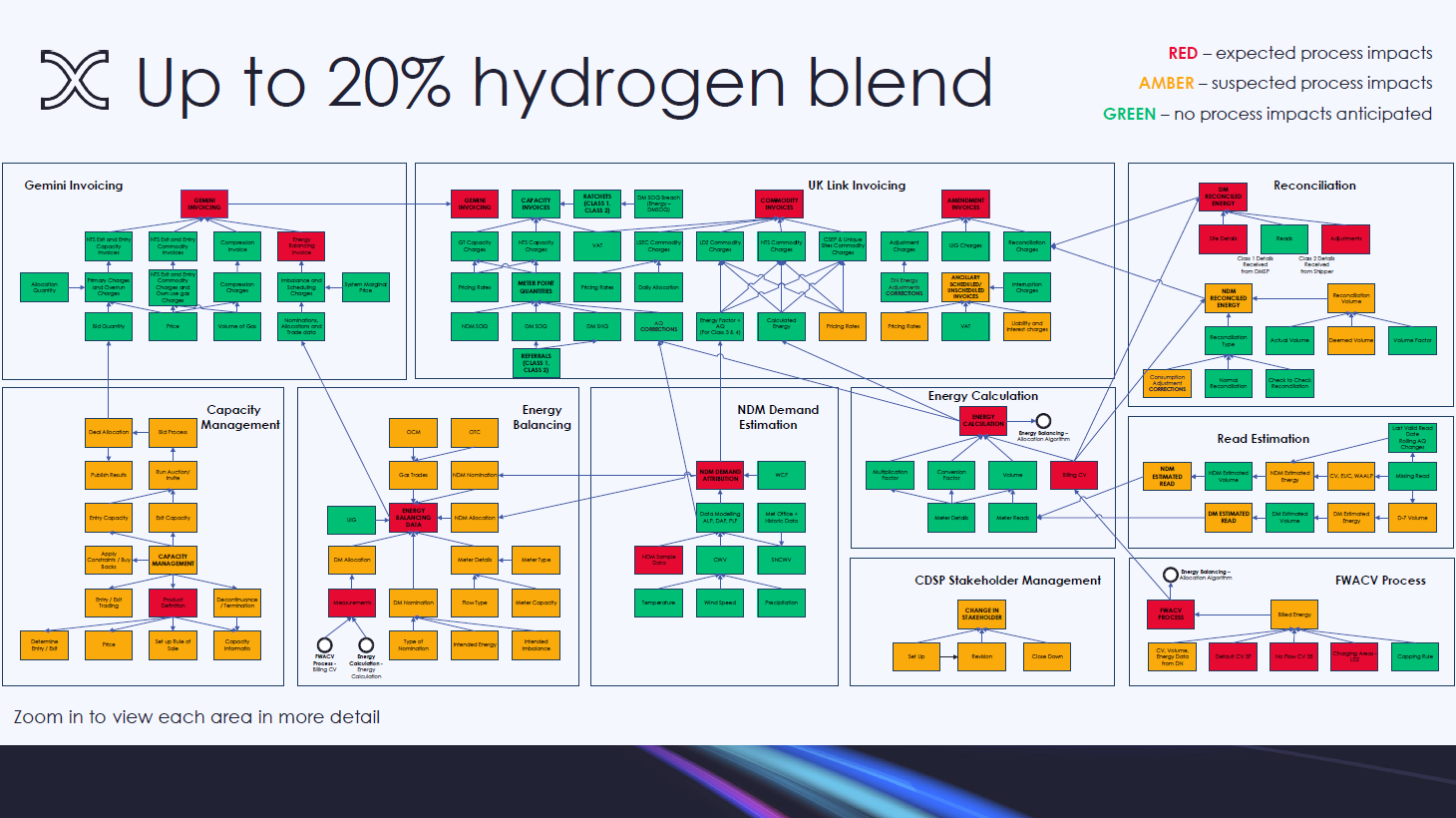Up to 20% hydrogen blend
Blending up to 20% hydrogen by volume allows for the removal of more carbon dioxide by increasing the amount of hydrogen in the blend. 20% hydrogen is in line with the maximum value that can be used with existing customer appliances.
This scenario assumes a consistent level of blend within a day.
Medium to high impact on CDSP systems
- Introducing hydrogen blends of up to 20% has a material impact on calorific value management and the FWACV process.
- To ensure accurate billing and settlement, LDZs would need to be divided into charging zones, with daily CV calculations applied to each.
- Where hydrogen is introduced through dynamic daily injections, complexity increases further. Varying blends across the network would result in multiple CVs being calculated each day for each charging zone, requiring frequent system and data updates.
- If market transparency requires differentiation between blended and non-blended gas, additional CDSP data items would need to be introduced.
- Taken together, this scenario represents a shift from medium to high impact, with significant implications for CDSP systems, billing, and regulatory frameworks, including potential updates to the Gas (Calculation of Thermal Energy) Regulations.
RAG matrix
- RED – expected process impacts
- AMBER – suspected process impacts
- GREEN – no process impacts anticipated
Note: This assessment does not define the scale or complexity of impacts.
| CDSP Process | RAG Status |
| Capacity Management | |
| Demand Estimation | |
| Flow Weighted Average Calorific Value (FWACV) | |
| Energy Balancing | |
| NDM Reconciliation | |
| Supply Meter Point Quantities | |
| Energy calculations | |
| Read estimations | |
| Corrections | |
| Referrals | |
| Change of Stakeholder | |
| Commodity Invoice | |
| Capacity Invoice | |
| Amendments Invoice | |
| Gemini invoicing | |
| DM Reconciliation | |
| Ratchets | |
| Scheduled and unscheduled invoices |
Context diagram
-
 Up to 20% hydrogen blend context diagram
Up to 20% hydrogen blend context diagramA high-level visualisation outlining the scope of changes posed to systems and processes, in the up to 20% hydrogen blend scenario.
PDF, Last Updated 7/08/2025, 139.1 KB
More information
If you would like more detailed information about the four decarbonisation scenarios, and the potential affects they could have on the CDSP central systems and processes, please email us at decarbonisation@xoserve.com.
Related links
More information
Contact us if have any questions or would like to know more about the four decarbonisation scenarios.
